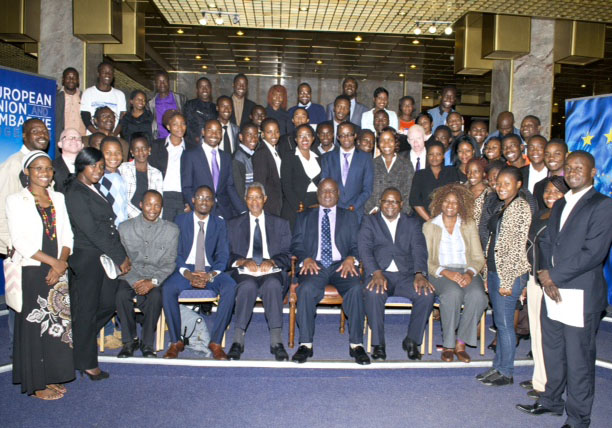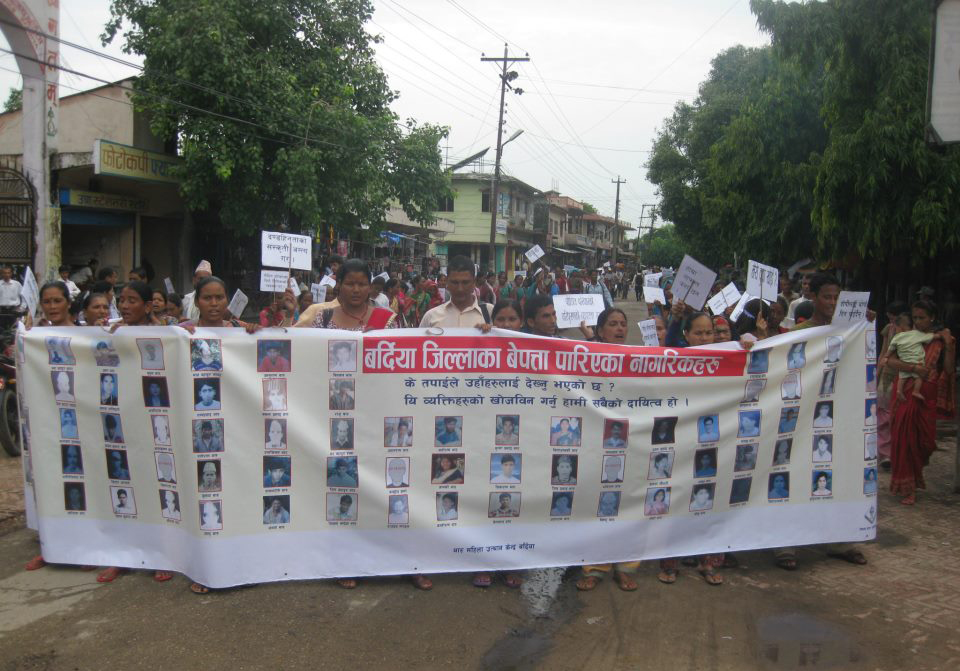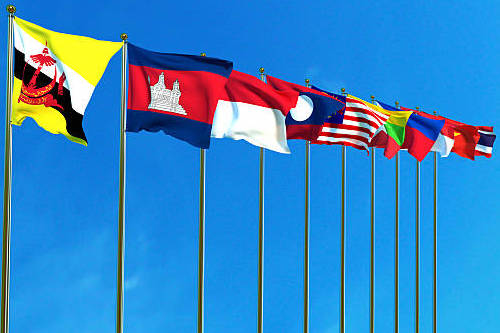
Apr 20, 2015 | News
The ICJ and the Zimbabwe Law Students Association (ZILSA) held a symposium on economic, social and cultural rights (ESC rights) on 17 April 2015 at Rainbow Towers Hotel, Harare.
A total of 84 people attended the symposium, 77 being students from the University of Zimbabwe.
The presenters at the symposium were Deputy Chief Justice L. Malaba, Dr V. Guni, Mr. D. Chimbga, Ms R. Rufu and Mr. J Mavedzenge.
Economic, social and cultural rights are a new phenomenon in Zimbabwe’s human rights discourse as they have been introduced into Zimbabwe’s Declaration of rights by the new Constitution of Zimbabwe (Constitution of Zimbabwe Amendment (No.20) Act 2013).
Zimbabwean jurisprudence on ESC rights is therefore still developing.
As a consequence, the notion of the justiciability of ESC rights is one that still requires nurturing if greater protection of these rights is to be achieved.
It was this background that motivated the ICJ and ZILSA to hold this symposium on ESC rights.
The symposium forms part of a broader initiative by the ICJ to ensure ESC rights awareness, education and litigation in Zimbabwe.
Through this symposium, the ICJ and ZILSA sought to provide a platform for law students to engage in an academic discussion on the scope, meaning and enforcement of the ESC rights.
The symposium discussions were meant to increase the students’ knowledge and understanding of ESC rights.
The topics presented at the symposium focused on the historical development and significance of ESC rights, litigation and justiciability of ESC rights under the new constitution and international best practices in the implementation of ESC rights.
The key note address was made by Deputy Chief Justice Malaba, under the topic, “Defining the Role of the Judiciary in the Enforcement of ESC Rights in Zimbabwe”.
The focus of his presentation was how the Zimbabwean judiciary has developed jurisprudence around ESC rights and in particular the approach of the Constitutional Court to the issue of “progressive realization” of ESC rights.
Commenting, after the symposium, Herbert Muromba a 4th year law student and President of ZILSA said: “The Deputy Chief Justice has transformed my understanding of ESC rights. The whole concept is no longer abstract but real, alive and relevant in my everyday life.”
Contact:
Arnold Tsunga, ICJ Regional Director for Africa, t: +27 73 131 8411, e: arnold.tsunga(a)icj.org

Dec 9, 2014 | News
On the eve of the 64th annual world Human Rights Day, the ICJ urges the Pakistani Government to promptly constitute a strong and effective National Human Rights Commission that is compliant with the UN Principles relating to the Status of National Institutions (Paris Principles).
“Independent and credible national human rights institutions can be helpful for protecting and promoting human rights,” said Sam Zarifi, ICJ’s Director for Asia and the Pacific. “The Pakistan Government has been inexplicably dragging its feet despite repeated promises to constitute the Commission.”
In South Asia, India, Sri Lanka, Nepal and Bangladesh have established National Human Rights Institutions (NHRIs), making Pakistan a regional exception.
“A properly constituted national human rights commission will not by itself fix any country’s human rights problems, but it can be part of the solution,” said Zarifi. “Pakistan can and should learn from the lessons of failed NHRIs in the region and constitute an institution that can address the real needs of all people in the country.”
Pakistan passed the National Commission for Human Rights Act in 2012. The law provides for an independent commission with broad powers to promote human rights and to investigate human rights violations.
However, the law significantly limits the Commission’s mandate where the armed forces are accused of committing human rights violations.
In such cases, the Commission is only authorized to seek a report from the Government, and make recommendations if it sees fit.
The law further emphasizes that the functions of the Commission “do not include inquiring into the act or practices of the intelligence agencies”.
“The proposed Commission’s restricted mandate over the armed forces, and especially the intelligence agencies, is of grave concern given that Pakistan’s military and intelligence services are accused of perpetrating gross human rights violations, including enforced disappearances, extrajudicial killings, and torture and ill-treatment,” Zarifi added.
“A human rights commission that does not have jurisdiction over abuses by these actors risks being toothless and ineffective—and worst, a cover for continuing government inaction in response to these violations.”
Contact:
Sam Zarifi, ICJ Asia Pacific Regional Director (Bangkok), t: +66 807819002; e: sam.zarifi(a)icj.org
Reema Omer, ICJ International Legal Adviser (London), t: +44 7889565691; e: reema.omer(a)icj.org
Background:
Section 3 (a) (ii) of the Paris Principles, which provide the minimum standards required by national human rights institutions to be considered credible and effective, states that a NHRI should have the power to hear a matter without higher referral over “any situation of violation of human rights which it decides to take up”.
Because of the proposed Commission’s limited mandate over the military, it is questionable whether the proposed National Human Rights Commission is compliant with the Paris Principles.
During its 2012 Universal Periodic Review, Pakistan accepted multiple recommendations to speedily operationalize the National Commission for Human Rights.
Over two years since the Review, there has been little progress in constituting the Commission, let alone amending the law establishing the Commission to ensure that it complies with the Paris Principles.

Oct 15, 2014 | News
The Malaysian government must ensure a rally tomorrow by lawyers protesting the country’s stifling Sedition Act can proceed peacefully, without undue interference by the police, who must take lawful measures to prevent violence from counter protesters, said the ICJ today.

May 28, 2014 | News
The ICJ today called on the Government of Nepal to amend the 2014 Commission on Investigation of Disappeared Persons, Truth and Reconciliation Act (TRC Act 2014) to bring it in line with international law.









